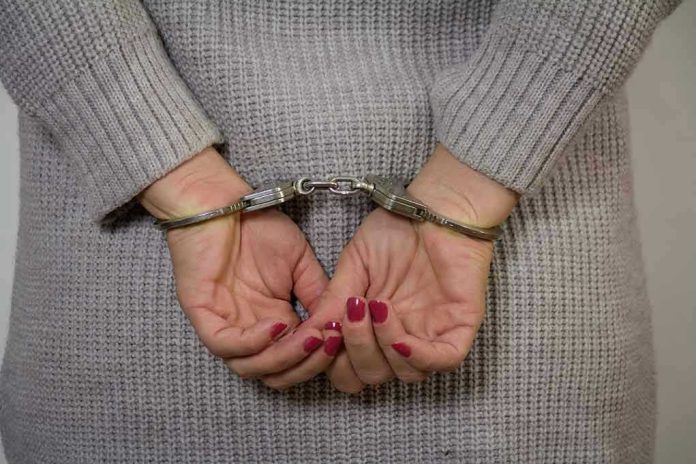
Public trust in America’s schools is shaken once again as a married mother and English teacher pleads guilty to 21 counts of sexual crimes involving a minor schoolgirl, exposing chronic failures in educator oversight and student protection.
Story Snapshot
- Teacher admits to 21 sex crimes spanning several years with a female student, starting when the victim was just 13.
- Case highlights ongoing national crisis of educator sexual misconduct and institutional cover-ups.
- Experts warn most cases go unreported due to fear, stigma, and administrative reluctance.
- Calls intensify for stricter prevention, reporting, and accountability measures in schools.
Teacher Pleads Guilty to Multiple Sex Crimes Against Student
A married mother and English teacher has pleaded guilty to 21 counts of sexual abuse involving a female student, with the abuse beginning when the victim was just 13 years old. Court records show that the teacher initiated grooming and inappropriate contact, which escalated to sexual intercourse after the girl’s 14th birthday and continued until she was 16. The ongoing abuse was concealed through manipulation, secrecy, and exploitation of the teacher’s position of authority, a scenario alarmingly consistent with national trends in educator sexual misconduct.
Cases like this highlight the vulnerabilities students face in educational settings, underscoring the urgent need for robust preventative measures and transparent reporting protocols. Many victims, fearing disbelief or retaliation, remain silent for years, allowing abusers to continue unchecked and school districts to avoid public scrutiny.
Educator Sexual Misconduct: A Persistent Crisis in U.S. Schools
Sexual abuse by school staff is a well-documented and persistent problem in the United States. According to the National Education Association, nearly 10% of high school students have reported some form of sexual misconduct by an educator, though experts believe the real figure is much higher due to rampant underreporting. Institutional failure to detect and address misconduct is common, with many schools prioritizing their reputations over student safety and sometimes even shielding offenders from prosecution. The power imbalance between teachers and students creates a dangerous environment where abuse can flourish unchecked.
Advocacy groups and researchers point to systemic issues: insufficient background checks, lack of ongoing monitoring, and inadequate support for victims. The widespread use of social media has further complicated detection and prevention, as many abusers use private digital communications to groom and manipulate victims, making discovery even more challenging for parents and law enforcement.
Impact on Victims, Schools, and Communities
The trauma inflicted on child victims of educator sexual abuse is profound and enduring. Survivors frequently experience depression, anxiety, disrupted academic performance, and long-term trust issues. For schools and districts, the fallout includes legal liabilities, expensive settlements, and a sharp decline in community trust. Public outrage over such cases has prompted some states to extend or eliminate statutes of limitations for reporting abuse, while others have implemented stricter hiring policies and increased training for staff. Despite these reforms, the vast majority of cases remain unreported, leaving countless children at risk.
Repeated failures to address educator abuse have fueled a nationwide demand for accountability and transparency. Legal experts argue that without mandatory reporting laws, ongoing staff screening, and trauma-informed support for survivors, meaningful change will remain out of reach. Families and conservative advocates alike call for the restoration of moral and ethical standards in schools, insisting that protecting children must always override bureaucratic convenience or institutional image.
Expert Analysis and the Path Forward
Leading researchers like Charol Shakeshaft warn that sexual abuse by educators is more prevalent than even the most publicized clergy scandals and remains vastly underreported. Analysis from the U.S. Department of Education and the NEA confirms that despite increased awareness since the #MeToo movement, most cases go unaddressed due to cultural and administrative barriers. Professional organizations and advocacy groups continue to push for rigorous prevention protocols, enhanced background checks, and comprehensive survivor support services in every district across the nation.
Conservative voices emphasize the failure of left-leaning policies that prioritize political correctness over child safety, arguing that the erosion of traditional values in education has contributed to a culture where such abuses can persist. Defending American families and constitutional protections means holding institutions accountable and demanding that no child is left unprotected in the classroom. As these tragic cases remind us, vigilance, transparency, and a return to foundational American values are essential to restoring trust and safety in our schools.
Sources:
National Education Association (NEA)
Levin Simes sexual abuse statistics
Ferretly blog on teacher-student misconduct and social media







